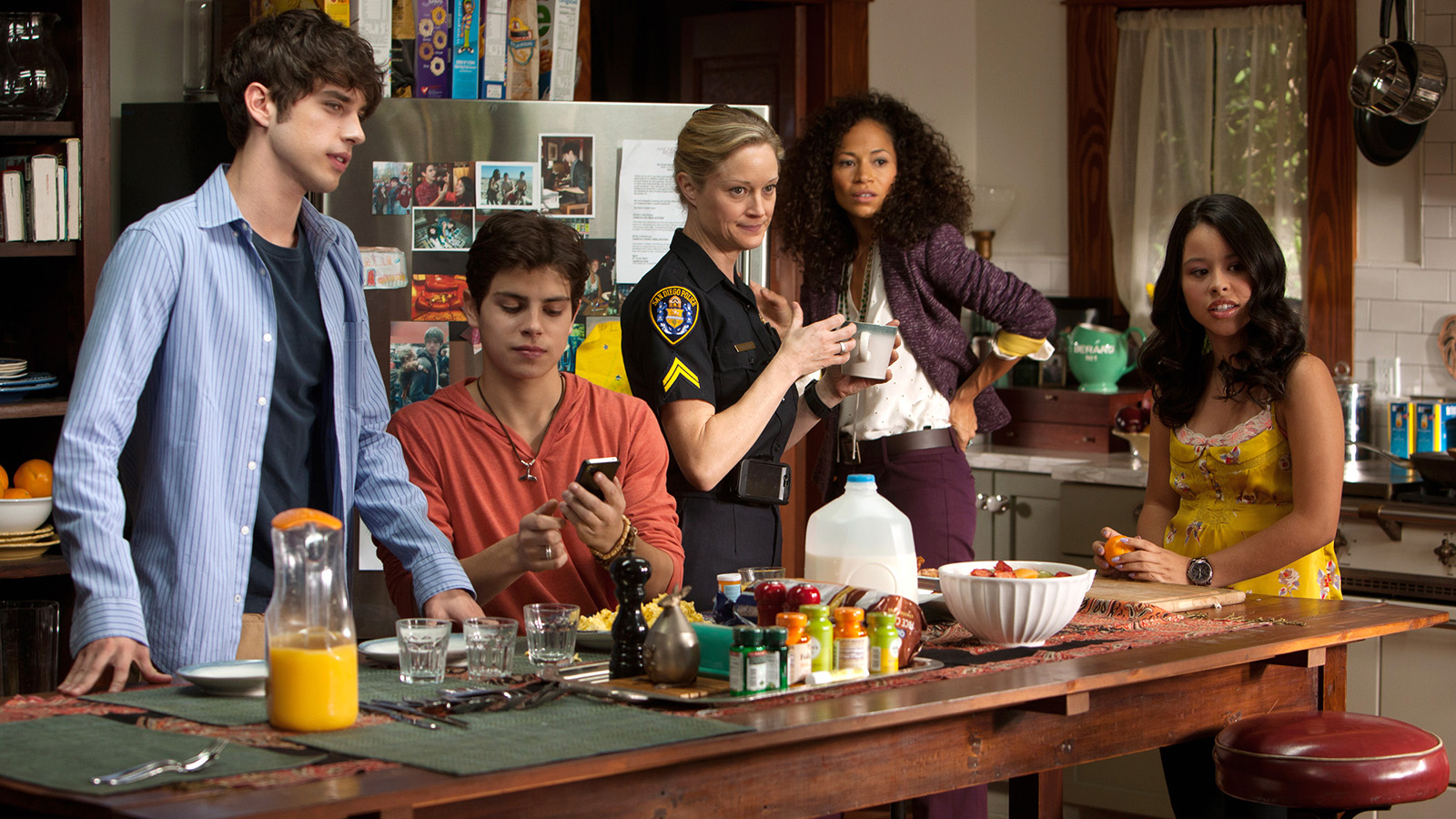‘The Fosters’ revives an ailing television genre
The Waltons they’re not, but that’s why ‘The Fosters’ is bringing back the family drama
ABC Family
Share

When you describe The Fosters, it doesn’t sound like the kind of TV drama that would catch on in this edgy age. It’s the warm-hearted story of a lesbian couple raising children from different parents and races, a companion piece to another ABC Family drama, Switched at Birth, the tale of two families who discover they’ve been raising each other’s children. “What’s in vogue at this moment is anti-heroes,” says Peter Paige, who co-created The Fosters. His show, which wraps up its second season this month, isn’t in that vogue: the parents are likeable people and so are their kids—even “bad girl” Callie (played by Maia Mitchell).
And yet both The Fosters and Switched at Birth have a following that most good-guy dramas don’t get. The Fosters gets reviewed alongside Game of Thrones on sites like Vulture, and some critics feel it’s edgier than the edgy shows: Manisha Aggarwal-Schifellite, arts editor for Shameless magazine, says The Fosters is willing “to deal with issues of racism, rape, sexual identity and addiction” in a way that cool anti-hero dramas won’t.
These shows belong to an old genre—family drama—that has produced many hits, from The Waltons in the 1970s to 7th Heaven in the 1990s and 2000s. In recent years, though, most networks have abandoned the genre in favour of more violent fare. Paige recalls that when he and his writing partner, Bradley Bredeweg, came up with the idea, “there was one family drama on the air, Parenthood,” based on the 1989 movie. Sitcoms like Modern Family were doing a better job of portraying the present-day functional family than any drama on the air.
That made Paige and Bredeweg worry that no one would buy their show, but once ABC Family came calling, they realized it was an opportunity to bring the form up to date. While anti-hero dramas like The Americans deconstruct the white nuclear family, The Fosters and Switched At Birth celebrate the changing definitions of a family. Sometimes they can barely keep up with the changes: the first season finale of The Fosters, in which the lead couple got married, was filmed only two days after the U.S. Supreme Court struck down the Defense of Marriage Act. Diversity is also a big part of the show: one parent is African-American and two of the adopted children are Latino. Switched at Birth takes on class: the families are brought together by the mistake that mixed up their kids (one of whom is deaf), but they’re separated by economic differences, a wealthy family co-existing uneasily with a poor one.
Dealing with big issues is part of the tradition of family dramas, as seen in the episodes about divorce and sex on the 1970s hit Family. This type of episode has become rarer (except on Degrassi) as writers fear being accused of getting preachy or sentimental. But though Paige says his writers “avoid finger-wagging,” The Fosters is famous for its issue-oriented stories. A recent episode had the mother, Lena (Sherri Saum), undergo a late-term abortion because her doctor told her she had pre-eclampsia. Another episode dealt with what Paige calls “statutory rape for boys,” as characters discussed the implications of 16-year-old Brandon (David Lambert) having sex with his father’s ex-girlfriend.
All this may broaden the viewer base. Other ABC Family dramas, like Pretty Little Liars and The Secret Life of the American Teenager, are teen shows. But John MacDonald, an executive for ABC Spark, which airs these shows in Canada, says the issues on The Fosters and Switched appeal to “the millennial audience we’re targeting.” Paige notes that “families with kids as young as 10 are watching the show and using it as a way to talk about some very difficult and complicated subjects.”
None of this has impressed Emmy voters yet, though Paige is happy about the recognition from critics and advocacy groups. And he’s also happy to be proving that you can make a traditional family drama with a non-traditional family. “What percentage of the population is being raised by two moms in a multi-ethnic family? It’s very small. But in telling something so specific, your stories still resonate universally.”